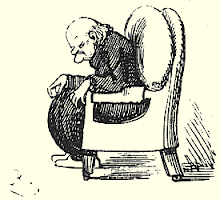You care about what I'm reading, don't you?
Just like, if you're my pally-wal on Facebook, you care about where I've been.
Right?
Because that's information that just plows you through the day.
And you definitely care about the mundane wordvom that pours forth from my psychologically-unattended brain every single day of the year, because, well, you're here.
Hi! Want a Swedish fish? We've got plenty.
I don't actually believe that you care very much about what I'm reading, but I'm going to pretend, for the sake of this blog entry, that you do. Maybe just a squidgey-widge. I suppose, if I wanted to yammer on about a book, I would do something rash like commandeer a local college's radio station, knock the chunky black glasses-wearing, prematurely-balding, skinny bearded loser in the "Sega Genesis" t-shirt on the head with a piece of pipe and take my inane book reviews to the airwaves.
Or join a book-club. But those are for middle-aged women who hate their husbands.
And then I thought to myself-- shit, I don't need to do any of that stuff-- because that all requires leaving my computer. I can just as easily just sit here and blog about what I'm reading because, in this modern society, I can blithely pretend that you care about such banal things as what I'm reading, what I had for breakfast (you know there are photography blogs simply devoted to pictures of the blogger's each and every meal? Kill me.) where I'm going this weekend (antiquing-- gay!) and what I think about teeth whitening products.
And you can reinforce that belief by reading, following, and commenting. Thanks for participating in the enhancement of my delusions.
Sidenote: Couldn't you just picture me as part of a book club? I'd love to do it-- just for s's & g's, and just for a day. I mean, I would never be invited back, so it would obviously just have to be for a day. I can't decide whether or not I'd show up in drag.
Anyway, I'm currently reading "Target Blue: An Insider's View of the N.Y.P.D." written by Robert Daley.
It's 562 pages and, according to Amazon.com, it's 2.2 pounds. That's rather a lot of bookage.
I love this book. I've read it several times since I first purchased it from ebay (my first ebay purchase, actually) in 1998, when I was a freshman in college. It was this book that inspired me to write my own law enforcement-related book. Daley was a civilian who was intimately involved with the police, and it was a subject that forever remained in his heart-- and, well, so was I.
My book was a lot shorter, and lighter, than his.
Robert Daley was a reporter in 1971 when he was assigned to interview Patrick V. Murphy, the new police commissioner of the New York City Police Department-- the most fabled, famed, scrutinized, influential and possibly important metropolitan police department in the country.
They spent a day together, Daley following him like a puppy or a shadow, or a shadow of a puppy, asking questions, scribbling in a notebook, paying attention. At the end of the day, Murphy asked Daley for his resume. Daley thanked the Commissioner and promptly forgot about the exchange-- he had no intention of becoming a cop.
A little while later, after another day-long follow-up interview, Murphy asked, "I thought you were going to send me a resume."
And so Daley banged out 3/4ths of a page on his typewriter and sent it off. A couple months later, he was summoned to police headquarters and was offered the position of Deputy Commissioner of the N.Y.P.D. He would be one of six Deputy Commissioners-- three of which were civilians-- usually lawyers. Daley accepted, and was sworn in and given a badge and a .38 revolver.
His mission: win back the public for the police department.
It's amazing to me to know that this is the way things were done back in the good old days-- or were they the bad old days? It's hard to tell, really. I was sitting in the living room with my mother yesterday and she made some passing comment about the 1970s.
"Ah, a marvelous time to be alive," I mused-- talking, as usual, directly out my ass because, obviously, I wasn't alive then.
"No," she said, "it wasn't so great."
Perhaps Robert Daley, given a shield and a gun and what back then was a very respectable salary, after a couple days of interviewing might have disagreed with my mother. Or maybe not. After all, in the very short time during which he was D.C. of the N.Y.P.D., he would attend a record number of Inspector's funerals, the ceremony-laden, full-dress send-off given to patrolmen who are murdered in the line of duty, he would witness (and even be caught in the middle of one) riot after riot in the streets of Harlem, he would have his life threatened, he would be alternately ignored, abused and praised according to the whim of the political winds that blew capriciously around One Police Plaza, and he would witness the very department he had come to love be brought to its knees in front of the Knapp Commission, set up to root out the rampant police corruption of the day.
During those Knapp Commission hearings, a young police officer would take the stand and, in front of television cameras and microphones, shout "VIVA LA POLICIA!" Afterwards, he would break down and weep. Ashamed and overwhelmed, that young police officer bolted from the room, and stunned spectators and reporters applauded the empty chair where he had sat.
That police officer's name was David Durk.
David Durk was one of the reasons why, one of the big reasons why I wanted to become a cop, way back when-- when I was twenty-two.
He was Jewish, like me. And he was college-educated, like me. Of course, David Durk was more intelligent, and more handsome, but we don't have to quibble about that. Like me, Durk always insisted on looking his best, and frequently wore sharp suits and ties.
"He looked like a lawyer," Daley said about him. His friend and fellow anti-corruption zealot, Frank Serpico, Daley mused, "looked like a pirate."
Together, the lawyer and the pirate, banded together to confront corruption, greed, graft and the other insidious poisons that threatened to infect and demolish the reputations of the then-33,000 member police department. They went to the New York Times, and the various stories, some small, some huge, about corrupt cops broke. Back in the 1970s, when this was all happening, Serpico was furious that Durk was getting all the credit and the attention.
Then, two things happened:
1.) Frank Serpico got shot in the face.
and
2.) Hollywood made "SERPICO," and Al Pacino got the role.
Now, the tides have changed. Guess who has a Wikipedia page, and a personal webpage and guess who has neither?
Life's pretty funny that way, I think. I've seen "Serpico" and, of course, it's a great cop movie-- hell, it's just a great movie altogether-- but David Durk barely exists in the film. Blink, fart twice, and go to the fridge for a slice of chocolate cake and you will miss him entirely. I suppose Hollywood felt that the wounded, homeless-looking, piratey Frank Serpico made better film material than the clean-shaven Jewish college boy.
The nice thing about "Target Blue" (what I'm reading!) is that it gives both men the credit for their part in headbutting corruption in the N.Y.P.D. It is a much more detailed, even, and reliable account of history, I feel, and maybe that's because it's 2.2 pounds.
Everybody loves asking kids what they want to be when they grow up. Lots of kids answer, "A policeman!" before they even know what the fuck they're talking about. If you had asked me, when I was in my early twenties, "What do you want to be when you grow up?" I would have answered, without a breath, "A police officer." If you had asked me, "Who do you want to be like when you grow up?" I would have answered, immediately, "David Durk."
Durk was someone who got under people's skin, crawled up their asses, talked long after the meeting was set to end, was passionate, earnest, single-minded and revolutionary in his thoughts about what policing in America should be. Young, idealistic college graduates who wanted the job for its promise of authority, integrity, justice and fairness-- not for the paycheck or the ability to shoot people. Too many take the police entrance exam because it's just in their family, or they don't know what else to do with their lives, or because they're action junkies or meatheads, or because they've got a score to settle. Durk joined, I think, because of the ideal behind the badge-- for the surge of your pulse when you pin that badge on your shirt.
For the right reasons, and there are right reasons.
Of course, Durk was repaid for his honesty and integrity with scorn, contempt and hot jealousy that dripped from the top on down-- but, if he noticed at all, it didn't deter him from his mission: winning back the police department for the police. I wonder sometimes if David Durk expected the N.Y.P.D. to love him back the way he in which he loved it. If he did, he was crazier than anybody gave him credit for, and plenty of people gave him ample credit for being crazy. If he wasn't foolish, or crazy, he must have at least been disappointed. And he wasn't alone in that. As a former officer once said, "The New York City Police Department is the king of disappointing people."
I wanted what Durk wanted, and what Daley wanted, too. I wanted to bring back respectability and honor back to the profession. I wanted to be the person people in the community would look at and say to themselves, "God, I'm glad he's patrolling my neighborhood-- I'm glad that guy is a cop. I'm proud that we have policemen like that here."
But, it was just not meant to be.
"That's not for you," my mother would say to me when I wanted to watch an inappropriate movie or television show when I was a boy. And that's what she said to me about policing on the day I quit the police academy after I couldn't lift 93% of my own body-weight over my head.
And I guess she was right. But you have to admit; it would have been a hell of a career, though, if I'd lived.
Lauren Soloy’s The Newest Gnome: A Quiet Adventure
10 months ago














No comments:
Post a Comment
Got something to say? Rock on with your badass apron!